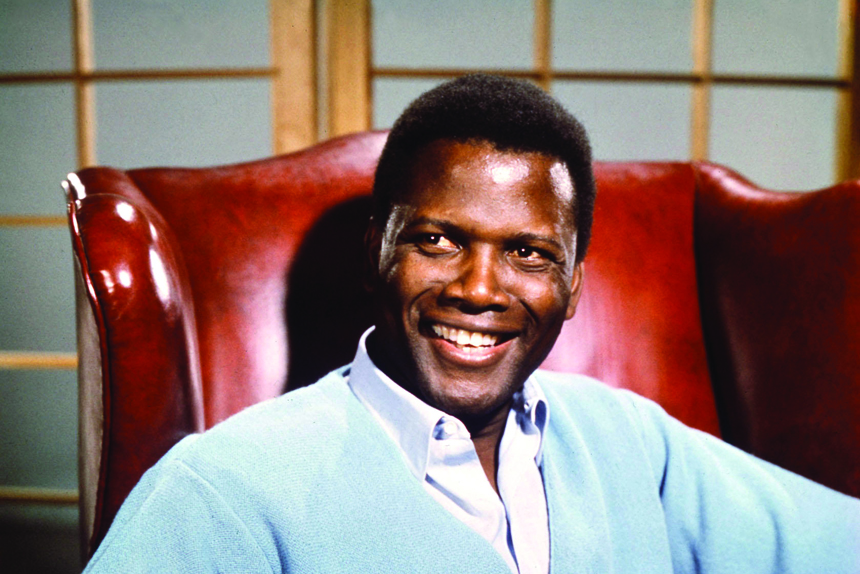—“Excerpt from Sidney Poitier’s Long Journey” by Normand Poirier, from the June 20, 1964, issue of The Saturday Evening Post
In repose, the face was handsomely boyish, untroubled, perhaps not too unlike that of the boy who had left the Bahamas at 15 to explore the other side of the horizon. There was a slight scar over the right eye from a stage accident and a blurred scar on the left calf from a stray police bullet fired during a Harlem riot. But for all his 37 years, both his face and his figure were in excellent shape. So were his career and finances. For 15 years, in films like No Way Out, Blackboard Jungle, The Defiant Ones, Pressure Point, and A Raisin in the Sun, which he also did as a play on Broadway, he had established himself as one of the finest actors in the business. u
His salary soared to more than $150,000 a picture. He had a tax accountant, golf and poker habits, and a steady call for his services. But all that was topped one night this spring when he became the first Negro to win a major Academy Award, for his portrayal of an itinerant construction worker who builds a chapel in Arizona for five nuns in Lilies of the Field.
The April night he accepted his Oscar as best actor of the year, he had said, simply: “It’s been a long journey to this moment.”
His journey had gone from Nassau to Miami, where his father had sent him with no warning or advice about racial prejudice in the United States. “It was all over the place like barbed wire,” Poitier said. “And I kept running into it and lacerating myself.”
He remembered his shock at seeing WHITE and COLORED signs. He remembered his fear when he hitched a ride with a car that happened to be occupied by four white policemen. “They really had their fun with me,” he said. “They put a pistol right to my forehead and for ten minutes just joked about whether to shoot me in the right eye or the left eye.”
In 1946, he got his first big break when a Broadway director, who was casting an all-Negro version of the Greek classic Lysistrata, saw him and signed him to a 12-line part. By 1949 he had so improved that 20th Century-Fox signed him to his first film, No Way Out. His sensitive performance as a doctor in a big-city hospital won him the important role of the young priest in Cry the Beloved Country. The barefoot boy from the Bahamas was on his way.
He has forgotten nothing, not a single detail, from his long journey. “An actor friend of mine told me once not to forget the anguish. None of it. ‘Store it all up and use it as an actor,’ he told me. Well, even if I tried to get rid of it, I think I couldn’t.”
—“Sidney Poitier’s Long Journey”
by Normand Poirier, June 20, 1964
This article appears in the January/February 2023 issue of The Saturday Evening Post. Subscribe to the magazine for more art, inspiring stories, fiction, humor, and features from our archives.
Become a Saturday Evening Post member and enjoy unlimited access. Subscribe now



